Farmers’ daughters: Opportunities out there

Becca’s dilemma sparked a huge reaction on our website forums, mainly from other women who wanted to share their own experiences and offer their advice. One thing is clear – there’s no such thing as a standard path for a girl from a farming family
Anthea Kitching North Yorkshire
I always assumed I would end up working on my father’s farm until he turned round one day and said: ‘Don’t expect to come and work for me when you leave school’.
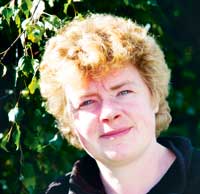 Totally heartbroken and with a lack of career advice I ended up working in boarding kennels, then moved on to an animal welfare charity, where I worked for nearly 10 years before I returned to farming as a milk recorder.
Totally heartbroken and with a lack of career advice I ended up working in boarding kennels, then moved on to an animal welfare charity, where I worked for nearly 10 years before I returned to farming as a milk recorder.
From there I learned how to milk cows and have never looked back since.
It was the best thing I ever did but I often wonder where I’d be now had I chosen this route in the first place. The choices and opportunities now are vast.
Experience as much of everything that you can and if somewhere along the line you feel that you are going in the wrong direction don’t be afraid to change and try something new. But whatever you decide, be happy.”
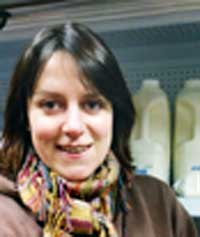 Emily Norton Norfolk
Emily Norton Norfolk
I studied law at Cambridge but eventually ended up moving back to the family farm.
I have ongoing concerns that I lack the amazing common sense that my father possesses when it comes to machinery and all things mechanical and know that I will need to farm in a very different way to how he does at the moment. But as much as it frightens me, I feel exhilarated at the same time.
| Do you have a view on this subject? If so, share it and read what others are saying on our forums. |
|---|
So I’d advise you to bust a gut to get to the best university you can, qualify in the best job you can and therefore give yourself the maximum chance of ending up in the firm you want to end up in. And if you don’t like it, you’ll have gained brilliant analytical training, confidence not to be fazed by a male-dominated workplace and the ability to digest a DEFRA manual in seconds. It’s unconventional, but I like it.”
Heather Seabrook Bedfordshire
Mum and Dad always encouraged us to find our fortune away from farming. After uni I did exactly that and joined a graduate scheme for a national chain of bakers, but after 10 years I was fed up of my two-hour commute, the long hours and the relentless, soul-destroying, pointless work. I also hadn’t found my fortune.
At this point my brother decided to sign his life away for 18 years to the RAF and, when my Dad then commented sadly at the kitchen table one night: ‘Well, there’s nobody to take over the farm now’, my feminist streak came out and I was jumping up and down in my seat saying ‘I can do it, why not me?’
Months of Mum and I wearing him down to believe I could do it followed. I finally left my job in December 2009 and started on the farm in January 2010 and so far I think I’ve made the best decision of my life.
Much to the delivery driver’s surprise, a girl can unload his nitrogen with a forklift without breaking his lorry.
Yes, there are things I struggle to do (Claas and John Deere seem to design all their kit for 7ft-tall men) but if I’m too short, I get a box, and if I can’t thump it hard enough I get the instruction book out (much to Dad’s disgust) and am normally able to work it out.
I’m working very long hours at the moment but still loving every minute. I bring new ideas.
I do earn less than I did in my previous career and may never earn on the farm what I could have done in retail. However, my success is up to me. If I set up a small business and diversify further then I might just do ok.”
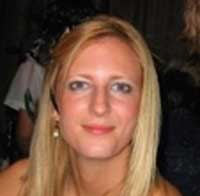 Lizzie Press Suffolk
Lizzie Press Suffolk
I’m a dairy farmer’s daughter originally from a small tenanted farm in Warwickshire. Unfortunately there was absolutely no chance of me being able to go back to the family farm so I had to make my own way in agriculture.
After seven years of working for a large pig production company within their integrated supply chain I am about to move jobs – my next career step within an industry I love. I have never worked with such proactive, progressive and ‘switched on’ farmers, always looking ahead to the next challenge.
Sometimes I’m out on the farm working with farmers and sometimes I’m in the office or going to meetings with retailers, so in my opinion I get the best of both worlds.
You don’t have to work on a farm to be part of the industry. There are many different parts of each agricultural sector and the allied trades can offer excellent career progression. Most are struggling to employ fresh talent to replace employees approaching retirement so there are some fantastic opportunities out there.”
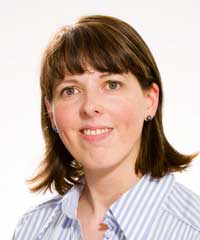 Isabel Davies Surrey
Isabel Davies Surrey
I’m a farmer’s daughter, and I must admit I never had any desire to stay on the farm (and it wouldn’t have been achievable anyway) but I did study an agriculture-related degree at University.
I work for Farmers Weekly and have to say that you might want to consider life as an agricultural journalist. You get the benefits of working in a sector you know, like and respect with some of the perks of being a civilian – office(ish) hours, pension, holidays and so on.
I certainly haven’t regretted it. Although I know that some people have struggled with moving to the south-east or outer London when they’ve first started at Farmers Weekly, it is not something that has bothered me too much.
I spent the first 18 years of my life on the farm, I seem to be spending the next 18 in the suburbs. Give me a few more years and I’ll be able to give you a truly even-handed assessment of where is the best place to live.”
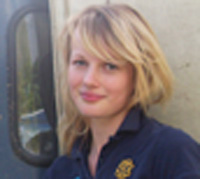 Anna Macpherson Hampshire
Anna Macpherson Hampshire
I did ‘A’ Levels in history, philosophy and literature with a view to studying history. However, in my final year I helped out on the family farm and ended up falling in love with my dairy herd and the lifestyle.
I quickly dropped my place to study history at Edinburgh and got on a plane to New Zealand. After spending a year out there and another working as the herdswoman on the home farm, I’ve decided to study agriculture at university.
An agricultural degree can lead you to any part of the industry – advertising, sales, consultancy, agronomy, teaching, journalism and of course, the mucky jobs.
Farming in my family has come from my mother – she’s built up her own herd of cows and taken on a farm without the privilege of coming from a farming background. She’s shown me that although this is a male-dominated sector, women can more than hold their own.
Young, smart and enthusiastic people are what farming needs. Don’t turn your back on it just yet.”
